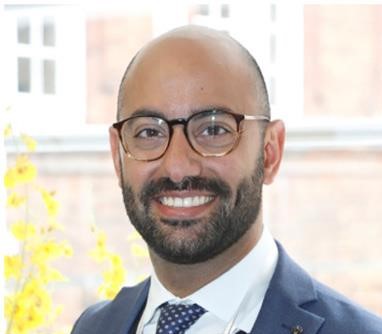The notion of a Smart City is one of the hottest topics in modern sustainability trends, and understandably so. Although the term “Smart City” has appeared in literature as of the late 1990s, there still is some confusion with regard to its exact meaning and context. However, and irrespective of a Smart City’s precise definition, Smart City initiatives are actively being implemented in some developed cities worldwide, while their application in Gulf Cooperation Council (GCC) cities is fairly limited. Various challenges lie ahead of GCC cities for an effective transition towards a Smart City model. The dimensions of these challenges include political, socio-economic, technological, and infrastructural aspects, with their proper integration being an essential element. With that, the purpose of this workshop is to study the current state, opportunities, and challenges related to Smart Cities in the GCC. The scope is well along 2 the lines of the United Nations’ (UN’s) Sustainable Development Goals (SDGs), in particular the 11th pillar on “Sustainable Cities and Communities”. The workshop aims to attract participants from diverse disciplines and sectors such as policy makers, engineers, political and social scientists, educators, researchers and innovators, and experts in relevant fields. The resulting exchange of knowledge is integral to bridge the gap between various stakeholders in the Smart City milieu.
3 DAYS / 12 Workshops
MORE THAN 300 ACADEMIC PAPERS
Background
Cities throughout the world are facing significant challenges related to the sustainability
of their various sectors such as buildings, transportation, industries, healthcare and
education [1]. With the worldwide population growth, the sustainable management of
key resources including energy, water, and food has become inevitable [2]. This has led
to the recent concept of a Smart City, a city that creates sustainable development and high
quality of life through smart and adaptive management of its resources [3,4].
Cities in the GCC countries are facing increasing demand for energy, water and food with
their projected population growth being among the highest worldwide [5,6]. A transition
towards smarter GCC cities is vital to an improved management of resources, a
knowledge -ased economy, and a high living standard. Such vision is in agreement with
the SDGs declared in the UN resolution A/RES/70/1 of September 2015. Specifically, the
11th goal titled “Sustainable Cities & Communities” is a confirmation of the need for
immediate action towards more sustainable and Smart City initiatives [7].
In recent years, some efforts have been taken by Gulf public and private entities to make
particular sectors more efficient; i.e. “smarter” [8]. However, such efforts have typically
been segregated among the various constituents of a city, thus failing to truly achieve the
full potential of a smart and integrated city. Furthermore, there is a common
misconception that a Smart City is strictly about adopting new technologies, when the
main goal is how these technologies can improve people’s lives [9]. Moreover, and with
the surplus of “big” data collected from numerous sources and the Internet of Things
(IoT), the challenge of a Smart City is now getting insights from data for optimal
decision-making [10].
3
Workshop Goals
The goal of this workshop is to explore the current state, opportunities, and challenges
related to Smart Cities in the GCC. Scholars and decision makers will discuss current
challenges and practices adopted in Gulf cities. Promising and novel implementations of
Smart City concepts will be mapped and assessed.
The exchange of knowledge during the workshop will aim to bridge the current gap
between different stakeholders such as policy makers, researchers and innovators, and
private sector entities.
In addition, the workshop will specifically address the key elements that the GCC
countries need to focus on in the next fifteen years in order to meet SDGs and thus
achieve sustainable development. Moreover, it will consider the question: what are the
obstacles, priorities, and policies required for an effective smart city transition?
Workshop Scope and Proposed Topics
This workshop will have four general themes (T1 to T4) to address the current state,
opportunities, and challenges of Smart Cities in the Gulf. The themes are illustrated in
Figure 1 and detailed below:
T1–Policy: Rules and regulations by governments or organizations, incentive schemes,
education programs
T2–Smart Infrastructure: Grids and energy management, sustainable water and waste
management, buildings, transportation and traffic management, communication networks
T3–Smart Technology: Information and Communications Technology (ICT), smart user
apps, energy and water metering and billing, data analytics and forecasting
T4–Socio-economics: Capital and life-cycle costs, excepted benefits, citizens’
responsibilities and engagement, contributions to quality of life, health, and happiness
These themes will be studied in light of the SDGs relevant to the GCC (Figure 1). How
can these themes be leveraged to overcome any resistance to SDGs? What type of
approach is needed to achieve these goals and transition to smarter cities in the Gulf?

